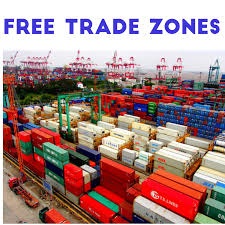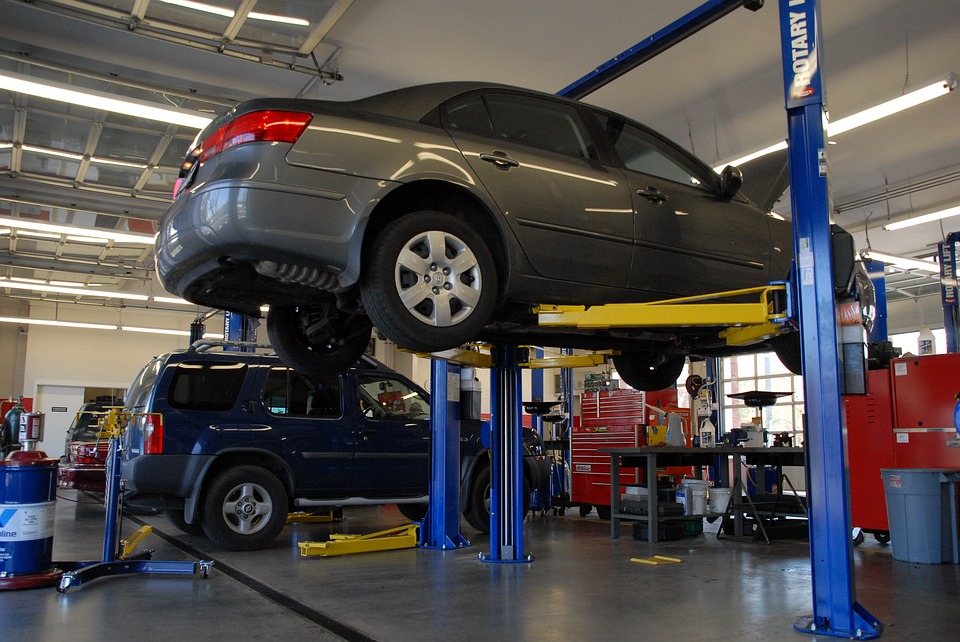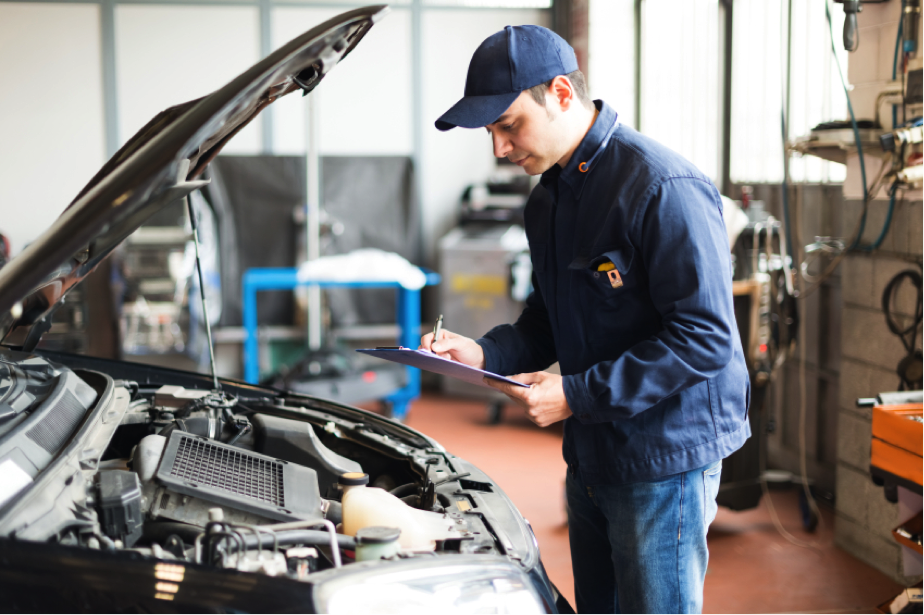VAT for Freezone Companies in UAE

VAT In UAE- VAT for Freezone Companies in UAE
VAT is form indirect taxation that charged at every stage of ‘Value Addition’ in the supply and distribution chain and the mechanism of Input tax deduction ensures that the businesses act as tax agents or tax collectors of the government, who collect the tax from the end consumers, account and pay the tax. Ultimately, the end consumer pays the tax. What is a TRN Number is explained below.
GCC countries have decided to implement taxation as part of the governments’ efforts to diversify revenues in the context of sharp decline in oil prices. The introduction of VAT will help the UAE government to generate an estimated Dh12 billion worth of revenue in the first year, which will increase to Dh20 billion in 2019.Collection of VAT will boost government revenues.
A standard rate of 5% will be levied on the supply of goods and services in UAE. However, there are certain supplies such as local passenger transportation, specified financial services, healthcare, exports outside GCC and so on, which will be either zero-rated or exempted from VAT in UAE.
What is Free Zone in UAE?- VAT for Freezone Companies in UAE
Free Zone, is a confined geographical area otherwise known as Free Trade Zone, declared by government being designated or given the position of free zone to promote the international business in UAE by providing 100% foreign enterprise ownership. Free Zones offer attractive incentives such as no requirement for a UAE national as a local partner/shareholder, tax exemptions on duties and taxes such as Corporate, Personal Income Tax, all import and export duties etc. The businesses in Free Zones are required to obtain the necessary licenses from the respective Free Zone authorities and comply with their guidelines when operating the business in this region.
Every UAE emirate has a designated area as a Free Zone. There are more than 35 Free Zones operating in UAE such as Jebel Ali Free Zone, Dubai Internet City Free Zone, Dubai Airport Free Zone etc.
Registration under VAT for free zone companies – VAT for Freezone Companies in UAE
Export of goods and services has been considered at zero rates other then exempted items. Taxable supply is currently subject to either 5% standard rate or zero rate of VAT
In case of a free zone based company, where all the sales of goods and service are exported then there would be no liability of vat being export zero rated. Such free zone companies could claim refund/ credit in future of the entire vat paid on import of goods and services and purchase of goods and services in other UAE companies subject to vat refund/credit rules and regulations in UAE VAT.
If part of the total sales and services are made to other UAE based companies then on that much sales of goods and services vat at standard rate of 5% could be charged and paid under VAT returns. Such free zone companies could set off the 5% VAT liability collected from UAE companies and customers from the VAT paid on import or local purchase of goods and services and if balances could recover as refund/credit subject to vat refund/credit rules and regulations in UAE VAT.
If a company does not register then the vat paid on local purchase of goods and service would not be recoverable. To claim the vat refund/credit it’s necessary to be a VAT registered business. Thus by registering under vat the company could recover as refund/credit of the VAT paid which otherwise would be a cost to company and hitting the profit margin/ bottom line, subject to the fact how much VAT refund/credit is lost.
Vat and Free Trade Zone
It is very important to know that not ‘All Free Zone’ are ‘VAT Free Zone’. This is evident from the definition and provisions defined in the UAE VAT Law and Executive Regulations. In UAE VAT law, VAT Free Zones are called ‘Designated Zones’ and the executive regulation prescribes the conditions which a Designated Zone needs to fulfil.
What is a Designated Zone?- VAT for Freezone Companies in UAE
Designated Zone refers to an area specified by a cabinet decision and that meets the conditions specified in the Executive Regulation. For the purpose of VAT, a Designated Zone will be treated as being outside the state and any supplies between Designated Zones will not attract VAT at 5%.
For example, ABC Traders located in Jebel Ali Free Zone supplied goods to XYZ Traders, Dubai Airport Free Zone.
Jebel Ali Free Zone and Dubai Airport Free Zone are Designated Zones. The supply of goods from ABC Traders to XYZ Traders will be VAT free since the supply is between Designated Zones.
Conditions for being termed Designated Zone
The Designated Zone specified by the cabinet decision should meet the following conditions in order to be considered as being outside the State and as well as implementation States:
- Designated Zone should be within a specific fenced geographical area
- It should have security measures and customs controls in place to monitor entry and exit of individuals and movement of goods to and from the area.
- It should have internal procedures regarding the method of keeping, storing and processing of Goods with the Designated Zone.
- The operator of the Designated Zone should comply with the procedures set by the Authority.
The above are conditions which a Designated Zone has to compulsorily comply. If there are any changes in the manner of operating or if businesses located in these areas no longer meet any of the conditions required to qualify as a Designated Zone, it shall be treated as being inside the State, and will be treated at par with the businesses located outside the Designated Zone.
List of Designated Zone in UAE
| Emirate | Designated Zone |
| Abu Dhabi | Free Trade Zone of Khalifa Port |
| Abu Dhabi Airport Free Zone | |
| Khalifa Industrial Zone | |
| Dubai | Jebel Ali Free Zone (North-South) |
| Dubai Cars and Automotive Zone (DUCAMZ) | |
| Dubai Textile City | |
| Free Zone Area in Al Quoz | |
| Free Zone Area in Al Qusais | |
| Dubai Aviation City | |
| Dubai Airport Free Zone | |
| Sharjah | Hamriyah Free Zone |
| Sharjah Airport International Free Zone | |
| Ajman | Ajman Free Zone |
| Umm Al Quwain | Umm Al Quwain Free Trade Zone in Ahmed Bin Rashid Port |
| Umm Al Quwain Free Trade Zone on Sheikh Mohammed Bin Zayed Road | |
| Ras Al Khaimah | RAK Free Trade Zone |
| RAK Maritime City Free Zone | |
| RAK Airport Free Zone | |
| Fujairah | Fujairah Free Zone |
| FOIZ (Fujairah Oil Industry Zone) |
Conditions for VAT free supply of goods between Designated Zones.- VAT for Freezone Companies in UAE
Supplies between the Designated Zones will not be subject to VAT only if the following conditions are met:
- The Goods are not released during transfer between the Designated Zones
- Goods are not in any way used or altered during the transfer between the Designated Zones.
- The transfer of goods is undertaken in accordance with the rules for customs suspension according to GCC Common Customs Law.
Over and above the conditions which are required to be met for VAT free supply of goods between the Designated Zones, the authority may request the owner of goods to provide a financial guarantee for the payment of tax, which that person may become liable, if the conditions for movement of goods are not met.
Treatment of supplies made ‘From’ or ‘To’ the Designated Zones
For the purpose of VAT, the Designated Zones are treated to be outside the State of UAE, meaning VAT will not be levied. Though it is treated as outside the State, not all supplies will enjoy this benefit, some supplies still attract VAT at 5%. The reason being, only the supply of goods will be tax-free subject to certain conditions and depending upon the place of supply, few type of supplies made from or to the Designated Zone will be taxable.v
Understanding the taxability of free zones
- Supply of goods from a Designated Zone to another Designated Zone.
- Supply of goods from Designated Zones to Mainland
- Supply of goods from Mainland to Designated Zones
- Supply of goods from Designated Zone to overseas/ GCC countries
- Supply of goods from overseas/ GCC countries to Designated Zone
- Supply of services within Designated Zones
- Other exception supplies such as Water, any form of energy, self-consumption of goods in Designated Zones etc.
| Type of Supplies | Form | To | Taxability |
| Goods | Designated Zone | Designated Zone | Non-Taxable |
| Goods | Designated Zone | Mainland* | Taxable at 5% VAT |
| Goods | Mainland* | Designated Zone | Taxable at 5% VAT |
| Goods | Designated Zone | Oversea/GCC countries | Non-Taxable |
| Goods | Oversea/GCC countries | Designated Zone | Non-Taxable |
*Mainland here refers to place in UAE except the Designated Zones
Asper the above table, any movement of goods from a Designated Zone to another will not be subject to tax only if the conditions mentioned in UAE Executive Regulations are met.
VAT treatment on Supply of Services related to Designated Zone- VAT for Freezone Companies in UAE
There is a differential treatment for supply of goods and as well as for the supply of services between Designated Zones. While the supply of goods between the Designated Zones are not subject to tax, it is not true in case of supply of services. The reason being, the place of supply of services is considered to be inside the State of UAE if the place of supply is in the Designated Zone. This implies, any services whether supplied from the mainland to Designated Zone or within the Designated Zone, the standard rate of VAT at 5% will be levied.
VAT treatment on Supply of Water or any form of energy to Designated Zone
Though the supply of water or all forms of energy are considered to be a supply of goods but in case of Designated Zone, these supplies are distinguished from other goods and treated differently. The place of supply of water or any form of energy will be considered to be inside the State if the place of supply is in a Designated Zone. This means, the supply of water and all forms of energy supplied to Designated Zone will be subject to VAT at 5% in the same way it would be in the non-Designated Zone areas of the UAE.
Self-consumption of goods supplies to Designated Zone
If the supply of goods made within a Designated Zone is to be used either by the owner or a third person, then the place of supply will be in the State of UAE. This implies that all the self-consumed goods within Designated Zones will be subject to VAT at 5%. However, there are certain exceptional scenarios where the consumption of goods within a Designated Zone will not be subject to VAT. The following are the exceptions scenarios:
- Goods are incorporated into other goods,
- Goods are attached to other goods,
- The usage of goods is such that it forms part of other goods,
- Goods are used in the production or sale of another good located in the same Designated Zone.
Goods located in Designated Zone on which VAT is not paid.
The consumption of goods located in a Designated Zone on which the owner has not paid VAT will be treated as imported into the State by the owner and will be subject to VAT if they are unaccounted. However, if these goods are consumed by the owner in the scenarios listed above (self-consumption scenarios) will not be subject to VAT.
From the above we can infer VAT treatment for supplies related to Designated Zones are different depending on the type of supplies. Firstly, the benefit of VAT exemption is available only for the supply of goods in certain scenarios and supply of services within the Designated Zone are taxable.. Thus, for businesses, it is really important to understand VAT treatment on supplies carried out by them, assess the impact of VAT on their business and accordingly plan.
VAT for Freezone Companies in UAE
Reach Accountant Online VAT Accounting Software
It is very essential that businesses use a software which will enable the task of maintaining records and managing accounts efficient. Businesses should carefully evaluate and decide a software which will help them in maintaining systematic and error-free accounts and records with compliance validation. The business software should be their instrument for compliance under VAT while helping them maintain their focus on the core business activities.
Need to upgrade to Reach Online VAT Accounting Software :
Reach Accountant software is well designed to match all the needs for successful running of the business. The software can be used in different industries ,traders ,manufacturers, retailers, workshop ,business projects etc. It is an online VAT accounting software that can automatically manage your book of accounts, taxes, inventory, sales, purchases and more online quickly and securely.
Benefits Of Reach Online VAT Accounting Software
Reach Online accounting software systems are rapidly evolving, giving business owners the ability to choose how and where they manage their finances. Whether at home or on-the-go, business owners are now able to execute administrative functions such as instantly viewing bank balances, tracking expenses, sending invoices ,supervising the work flow of branches through Reach online VAT Accounting Software thus making business more viable.There are many advantages of using an online accounting system including:
Reach online VAT accounting system can help you manage your business by improving your recordkeeping processes and give you the tools you need to analyze business results and make sound financial decisions.
- Online Access 24/7
- Cost
- User Friendly
- Technical Support
- Efficiency
- Analysis –
- Security and Accuracy
- Inter Connectivity of Branches:
- Opportunities
- Scalability
Top Features of the Reach OnlineVAT Accounting Software are:
- Accounting Management: All functions relating to accounts are inbuilt with the software. You can manage your Accounting Ledgers, Bank & Cash Operations, Purchase & Sales Estimates, Warehouse Allocations, Expense Recording, Expense Grouping, Payments – Part or Full, Journal Entries, Income and loss a/c, Balance sheets, Receipts – Part or Full, Contra Entries, Financial Reports, Day book.
- Tax Management: Our accounting Software automatically calculates the taxes relevant for every bill created. The Software is designed as per the government norms for calculation of VAT. It also has the option to add any number of taxes relevant to the business. In case of change in tax percentages a change it in the software on your own. All you have to do is add your tax percentage and our software will calculate the taxes automatically. This multiple tax scheme can also be applied to multiple products on a single purchase.
- Income Management: The Company can create Quotations then the same can be converted as a Sales order or Pro-forma invoice or Invoice. From Invoice you can create Receipts as well. Accountants will be able to know what payments have been received and what are pending in the reports. You can also set reminders for receiving payments.
- Expense Management: You can create Purchase Orders then the same can be converted as bill or payments. You can also create Debit notes for purchase returns. Accountants will be able to know which purchase bills have been paid and which are pending in the reports. You can also set reminders for making payments.
- Invoicing: Generates VAT compliant invoice of the company in the specified design as requested by the client or can choose from the available templates in the software. It also converts quotes to invoice .One of the features is the software can convert the Foreign currency invoices to base currency and further calculating the VAT at UAE standard rate.
· Print Tax Invoice In Arabic: Reach software lets you print invoices in Arabic, English or both, as per the mandated guidelines of GAZT and FTA.
- Auditor View: Full-fledged Financial reports, Tax reports VAT reports, read process by auditor, with e-filing options, PF & ESI Reports, Tax Consulting Modules are some to be named.
- Check Post for VAT returns: As the software has been designed exclusively to aid individuals and entities to be VAT compliant in UAE, the set of rules and regulation laid by FTA (Federal Tax Authority) of UAE are embedded in the software. Hence any process error will be popped up by the application can be viewed .For instance wrong Tax Registration Number, incorrect taxable figure, wrong taxation period.
- Automatic Update on Tax legal Sections: As the Reach software are cloud computed software gets upgraded to update any revised tax laws and section if any in future.
- Computation Of VAT Returns: The software is inbuilt with all the detailed crucial information on tax computation Tax Assesee can fetch all the details of all the taxable transactions It lists down transactions which are included and excluded in the VAT return calculate input tax, reverse charge and output tax to avail claim if any
- Filing Of VAT Returns: The registered businesses in UAE are required to generate the VAT return File from their accounting software, login to the FTA’s e-tax portal and upload the return file. On the basis of the uploaded return file, the e-tax portal will validate the file and accordingly the details from the file will be auto-populated in the online return form. Reach VAT software is designed to ease the process of filing returns and comes under the purview of FTA prescribed set of rules and regulations.
- * VAT Reports etc.
- Calculate VAT automatically.
- VAT support in Sales, Purchase, Sales and Purchase returns, Journal entries.
- Generate Federal Tax Authority compatible tax reports.
- VAT Paid (charged by suppliers) and Vat Collection (Charged to customers) Analysis.
- Transaction wise details of VAT paid and VAT collected.
- Attach every Vendors/Customers VAT number and other details.
- VAT supported for Goods (stocked) and Service (non-stocked) items.
- Online application accounting.
- VAT Account Reconciliation, VAT Collection & VAT Paid analysis report.
- Report export to excel and other standard formats.
- VAT returns statement compatible with Federal Tax Authority standards.
Online accounting VAT software enables you to file vat returns, manage accounts and other business operations from any geographical area be it at the comfort of the house.
- Receipt: Receipts can either be manually entered or imported it in excel format easily.
- Payments: Payments can either be manually entered or imported it in excel format easily.
- Multi Company: Manage business through comfort of the smart phone.
- Tally Import: Tally files can be easily imported to Reach Software of various periods and manage business easily.
- Auditor’s Report: Full Financial Report are available,Read process by Auditor,Tax Reports,VAT Report with e-filing options,PF & ESI Reports,Tax Consulting Modules are some featuress mentioned.
- Mobile Application: Access business information through tabs and android smart phones, pick photos of expense vouchers and attach to expenses, daily profitability and other key reports can be viewed on phone.
- Bank Synchronization: Bank Statements can be imported in to Reach software through excel files.
- Security: There is complete security of data stored in the hard disk. Data can be accessed and control by creating access restriction. One time password facilities also ensures a check in the log in to the website.
- Run Business from anywhere: The business can be run access data from anywhere at your comfort. Just like checking mails from the laptop or systems.
- Free and Automatic Upgrades: At Reach Accountant you will be provided free services of upgrading the software frequently with new features and use it absolutely free.
- No investment in expensive hardware: The software is browser based. It just requires internet connection which can be connected to multi computers without using LAN and servers
- API: The client can integrate the existing software with Reach accounting application ,
- Automatic Data Backup: Reach stores all the data in servers offsite with regular backups. Hence business information is safe and secure
· User Interface & Complexity:The software is designed to make its use friendly and easy,no cumbersome process to operate the application and software.
- Scalability:It is an VAT accounting software which can scale with your business needs. . Some software companies offer only one version of the product and some have progressive versions depending the business type or size. Reach Accounting software offers both integrated an entry level version as well as a feature rich version which you might not need for the current business processing but will definitely need in future for business development.
Top Two Features of the Reach Accounting Software
- Outsourced Accounting: The software enables to finish the outsourced accounts in less than 30 minutes.
- Real Time Accounting: Allows client to record sales and purchases online, while finalizing accounts that is checking the Audit trail, providing MIS reports, checking Tax reports, printing financial reports and filing taxes.
Technology Used
Reach has implemented the latest technology Cloud Computing to handle day to day business transactions just a click away from your browser from any part of the world.
Cloud accounting software that is easily accessed online and an attractive option for large or small business owners. Companies that use cloud accounting require less initial server infrastructure to store data and don’t require IT staff to maintain or update the cloud accounting system. Get the spectacular benefits of cloud accounting as you seamlessly integrate with the powerhouse
Benefits of cloud accounting:
- Streamline billing and ordering processes
- Capture and store financial data to most accurately model and report on your finances
- Use Chatter to enable more effective collaboration across your organization
- Greater return on investment and real-time, multi-dimensional financial analysis
Popular posts
 How to start Car Service Centre – Business Plan Free DownloadRoohi Shabir - 09 July
How to start Car Service Centre – Business Plan Free DownloadRoohi Shabir - 09 July How to start a Café in UAERoohi Shabir - 09 July
How to start a Café in UAERoohi Shabir - 09 July How to set-up a consulting business in UAERoohi Shabir - 08 July
How to set-up a consulting business in UAERoohi Shabir - 08 July Guide for opening mechanic shop in UAERoohi Shabir - 07 July
Guide for opening mechanic shop in UAERoohi Shabir - 07 July Automobile workshop tools listRoohi Shabir - 05 July
Automobile workshop tools listRoohi Shabir - 05 July
Categories
- Blog / 33
- Invoice / 8
- Uncategorized / 101





